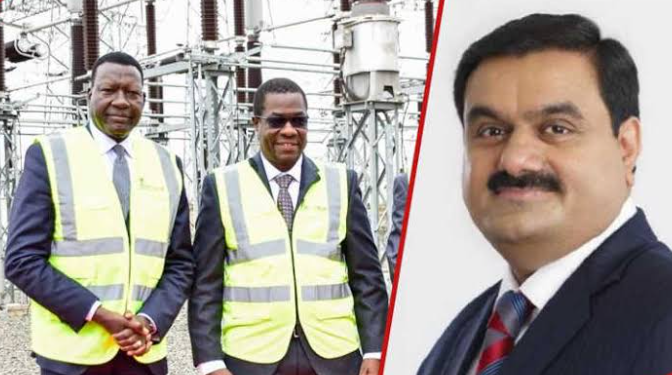The Ksh 95.7 billion deal between KETRACO and Adani Energy Solutions, aimed at enhancing Kenya’s energy transmission infrastructure, has sparked serious concerns.
While this agreement promises to bolster power reliability, critics are wary of Adani’s global reputation for unethical practices, especially in India.
The Adani Group has been accused of environmental destruction, displacing indigenous populations, and labor violations, notably through coal mining projects.
These issues were further exposed in the *Hindenburg Research* report, which detailed financial misconduct and corporate malpractices.
Kenyan stakeholders, particularly environmentalists and labor unions, fear similar violations may occur in Kenya.
The main worries center on potential environmental harm, exploitation of local workers, and inadequate protection of affected communities.
In India, Adani has been criticized for its close ties to the government, leading to reduced competition and questionable corporate governance.
Kenyan critics caution that such influence may be replicated here, which could lead to conflicts of interest and compromised public interest in energy policies.
Civil society groups in Kenya are pushing for increased transparency in the deal-making process.
They are demanding that the government ensure stringent oversight, fair compensation for displaced communities, and safeguards to prevent environmental and labor violations.
The call for public participation in decision-making is growing louder, as citizens want to avoid the secrecy and poor governance that have tainted large-scale projects in other regions.
Adani has consistently denied the accusations levied against it globally.
However, the conglomerate’s presence in Kenya is fueling apprehension, with many urging the government to enforce strict regulatory measures to protect Kenya’s public interest and environment.
Given the scale of the project, concerns about labor conditions, fair treatment of workers, and potential ecological damage are high on the agenda.
Many fear that without proper oversight, Kenya could face the same challenges witnessed in Adani’s previous projects.
While the deal with Adani promises infrastructural improvement, Kenya must remain vigilant.
A robust framework of accountability, transparency, and public participation will be crucial to ensure that this partnership does not lead to environmental degradation, community displacement, or compromised governance as seen in Adani’s past ventures.
Only with these safeguards can Kenya secure the benefits of this deal without falling into the traps of exploitation and misconduct.





















Add Comment